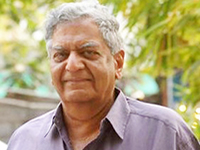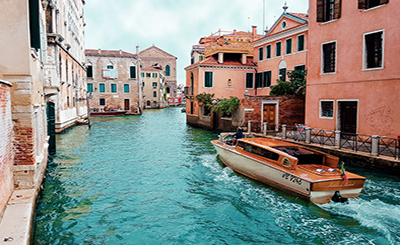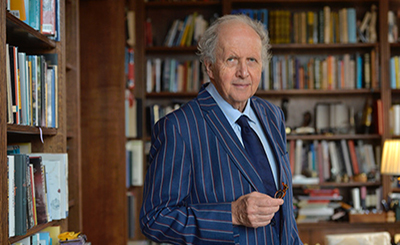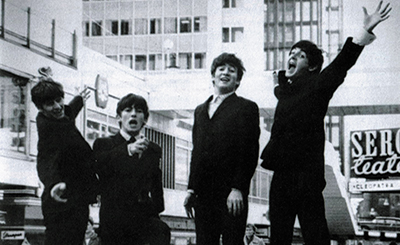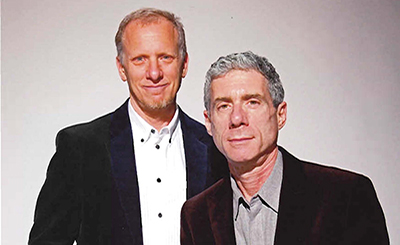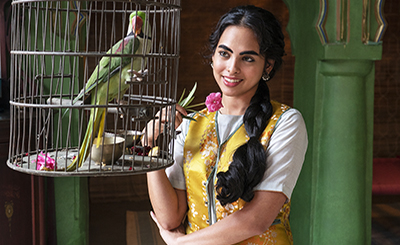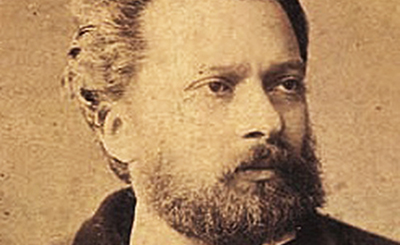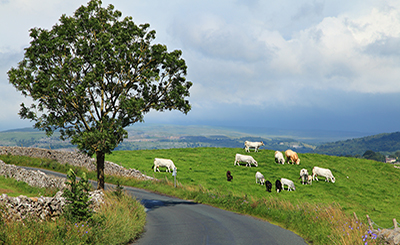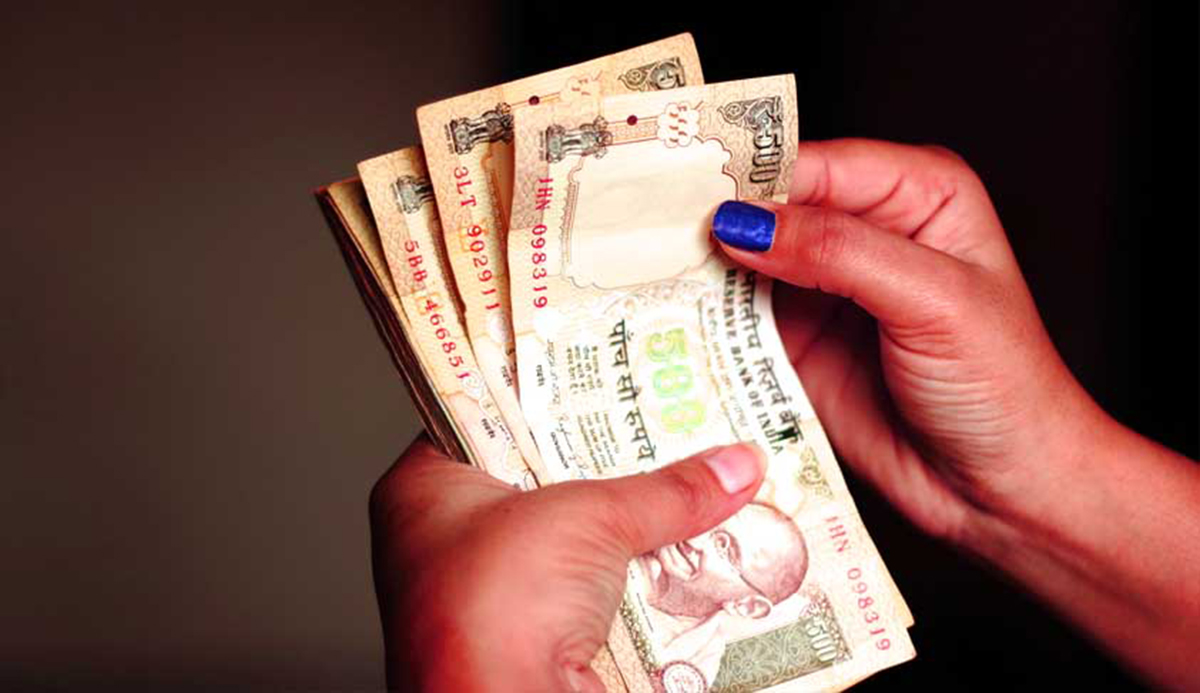
I had spent a tiresome week trying to get my bank passbook updated. I had finally succeeded by the simple ruse of taking a bedroll and camping outside the bank’s doors at the dead of night. A sinister-looking fellow with a handlebar moustache who came by at dawn tried to threaten me with a large kitchen knife, but I stood my ground. Fortune favours the brave, what? Soon a crowd of depositors collected, milkmen, housewives, auto-drivers, and a ninety-year old man in a wheel chair, pushed along by a small boy. The fellow with the knife tried to convince them that he had been ahead of me in the queue, an altercation broke out, but perhaps my bedroll and my honest face helped the majority side with me. When finally they came to know that I wasn’t there to withdraw cash, everyone laughed, the fellow slapped me on the back jovially and said he would buy me a cup of tea if he had had any cash. At that moment an enterprising chai-wallah turned up wheeling his cart, and said there was tea for everybody for now, if we would only remember to repay him in the New Year after the demonetization period ended. Everyone swore solemnly to repay him asap, and we drank tea happily together like close family members. Time passed easily with everyone relating the trials and tribulations they had faced since our own 9/11. When the bank doors opened at long last, there was the expected tension in the long queue that stretched out of sight, but queue discipline held and I was in through the doors in a rush. By 4.40 in the evening a harried but kind-hearted bank clerk took pity on me and updated my passbook. I returned home in triumph. My wife and I celebrated, not with dinner for none of the vegetable sellers would exchange her Rs 2,000 note, but with several grateful cups of hot tea.
The next day, having put together all my income receipts, and tax deduction certificates, and clutching my passbook, I went to meet my chartered accountant in some trepidation, for who knew what mistake I had made? I was too poor a man to have seen much white money, let alone black, but in the stern mood of the hour, I feared I might have done something or omitted to do something that would land me in deep trouble, if not in jail.
Seeing me sweating in the opposite chair, my chartered accountant chuckled, and then laughed outright.
‘My dear chap!’ he boomed. ‘Don’t be such a scared rabbit! There will be no talk of black money in India by January the First!’
‘What? What do you mean?’ I quavered.
‘Income Tax rules will be totally revised. I have it on the best authority from the RBI and the Finance Ministry as well!’
‘You mean there will be a general amnesty given to all tax evaders?’ I asked.
‘No! No! No! No amnesty. Black money – or what was called black money till yesterday – will be welcomed as legal! It’s brilliant!’
‘You are joking, surely?’
‘No jokes. Look, now why do you tip a waiter?’
‘To get some service.’
‘Precisely. T-I-P, to insure promptness. Historical. They knew a thing or two in the old days. Now, why do we give what used to be called bribes?’
‘That’s not the same thing!’ I said hotly. ‘It is an evil practice, and it steals people’s money, and…’
‘That’s where you are dead wrong. Bribes – we have to think of a better name – something positive – put money in people’s pockets. They drive the economy. They produce growth, which means jobs, assets, FMWGs, why even a greener environment!’
‘That’s nonsense!’ I said angrily.
‘My dear chap, you’ve got the wrong end of the stick, that’s because you are not an economist. Let me explain. Bribes – let us pick a better name – yes – economic pacemakers – ecopace – Ecopace! That’s great! They are a necessary cost for any transaction. The larger the ecopace, the more important the project, the more valuable it is to society, and all the better for people, especially the poor.’
‘It’s a little beyond me, but…but you mean the government is accepting this view?’
‘Not just accepting it, promulgating it, driving it for a better future! Do you think we could have got to where we are without all those brilliant brains finding out ways and means to make a quick buck – a quick billion bucks, that is – without all those tiresome hurdles of law? No way. Their existence means you and I exist. Think it out. Who would you rather support, a guy who makes a lot of money and lets us have some, or some fool clerk who sits behind a filthy desk talking endlessly about rules and regulations?’
‘Well, if you put it that way….’
‘I do. Emphatically.’
‘But…but…surely the government just can’t say it is now a free for all, and…’
‘No, that’s right. But Parliament will bring a Constitutional Amendment permitting individual businessmen, bureaucrats, politicians, to collect indirect taxes. Far more efficient than making a government department do it. You want something done, you go to the right person, you pay the indirect tax. Government farms out the ecopace indirect tax collection process. Save time and money, and it is people centred, like the old zamindari system.’
‘What happens if the fellow just pockets the money and does nothing?’
‘That happens all the time, right? You go to another person. The market for ecopace decides. Read Adam Smith. I will let you into a secret. Some of the best black marketeers – I don’t have to name them, everyone knows who they are – will be asked to advice the finance ministry, a few will get cabinet berths. We need their knowledge for unfettered high growth!’
‘This is for real?’
My chartered account chuckled again.
‘Wait for the Republic Day honours list. A new order of merit has been created. Param Desh Gol Mal! I am due for one – third class!’
More from The Byword
Comments
*Comments will be moderated



